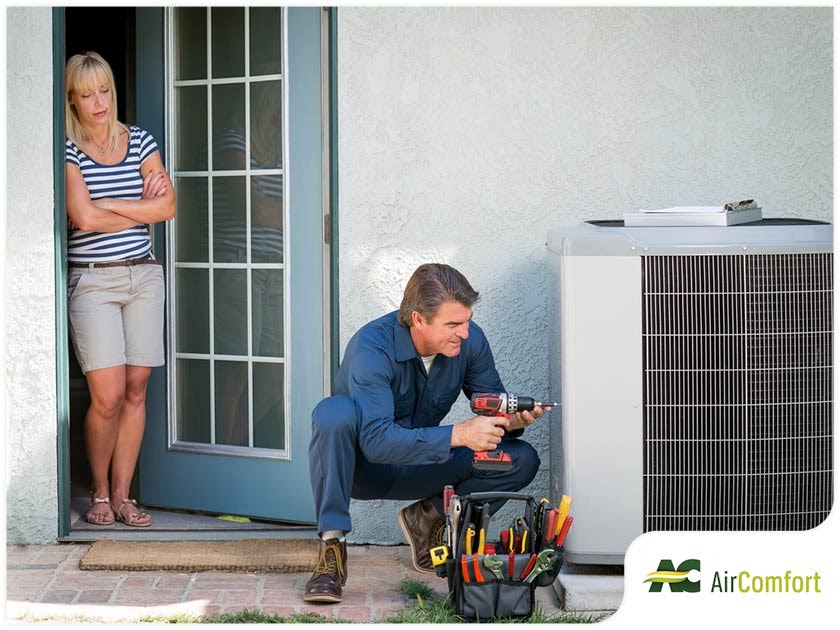HVAC Inspection Canoga Park How to choose an HVAC contractor
Purchasing a Trane furnace requires cautious consideration of a quantity of price elements. Homeowners typically focus primarily on the upfront value of the unit itself, but this strategy can lead to miscalculations when budgeting for general heating bills. Evaluating the purchase worth, installation costs, ongoing maintenance, vitality efficiency, and potential repair expenses presents a more comprehensive view of total possession prices.
The initial funding in a Trane furnace sometimes varies based mostly on model and capacity. Different models offer diversified features, such as advanced know-how and energy efficiency rankings, which might affect the overall price. Higher-efficiency units might have a better preliminary price ticket, however the long-term savings on energy payments can justify that upfront expenditure.
Installation plays a crucial position within the last value. Professional installation can be a significant expense, and it's important to acquire quotes from qualified HVAC contractors. Factors influencing installation prices include the complexity of the job, the existing ductwork, and any required modifications. Be positive to ask for detailed estimates that cowl labor as well as materials, as this will present a clearer picture of the whole value involved.
Maintenance costs should not be underestimated. Regular maintenance is crucial for guaranteeing a Trane furnace operates effectively. Annual tune-ups can help maintain guarantee circumstances. While some householders might contemplate foregoing professional maintenance to economize, this could lead to more important repairs and inefficiencies if issues are left unaddressed. Investing in routine servicing can ultimately save householders from costly breakdowns in the lengthy term.
HVAC Installation Canoga Park HVAC Contractor Locator - Insulation
Energy prices represent one other crucial component of overall ownership bills. Trane furnaces come with varied vitality efficiency scores, typically denoted by the Annual Fuel Utilization Efficiency (AFUE) percentage. A higher AFUE indicates that a furnace converts a extra significant portion of fuel into heat, leading to lower utility bills. Proactively evaluating vitality usage and contemplating upgrades that improve efficiency can substantially lower annual heating costs.

What factors affect the price of a Trane furnace installation?
Several factors influence the installation value, together with the kind and measurement of the furnace, further ductwork or modifications needed, native labor rates, and any necessary permits or inspections required by native regulations.

Air Filtration Canoga Park Top 10 Best HVAC Contractor
Yes, many Trane dealers offer financing choices, permitting customers to pay for their furnaces in click now month-to-month installments. It's advisable to inquire about these choices throughout your consultation and evaluate charges and phrases.

Higher power efficiency scores usually come with a higher upfront price, however they'll lead to important savings on vitality bills over time. Models with larger efficiency scores usually qualify for rebates, making them more financially viable in the long run.
What are the upkeep prices associated with Trane furnaces?
HVAC Tune-Up Canoga Park HVAC Air Conditioning Contractors
Annual maintenance for a Trane furnace usually ranges from $100 to $300. Regular maintenance helps guarantee optimum efficiency and might lengthen the furnace's lifespan, doubtlessly saving cash on repairs over time.
Are there warranties out there for Trane furnaces, and how do they have an effect on costs?
Trane offers warranties on their furnaces, typically covering components for five to 10 years. Some fashions might embrace extended warranties for an extra cost. Warranties can help mitigate repair costs and provide peace of mind.
Energy Efficiency HVAC Canoga Park HVAC Contractor
How do native climate circumstances affect the value of a Trane furnace?

HVAC Installation Canoga Park Plumbing & HVAC Contractors
What should I think about earlier than buying a Trane furnace?
Consider components corresponding to your own home size, specific heating needs, energy efficiency ratings, price range, and long-term costs. Consulting with a professional HVAC professional might help you identify the most effective mannequin in your house.
Can I install a Trane furnace myself to keep away from wasting on costs?
While it might seem cost-effective to put in a furnace yourself, it's usually really helpful to hire a professional. HVAC Inspection Canoga Park. Improper installation can result in security risks, decreased efficiency, and costly repairs in a while.